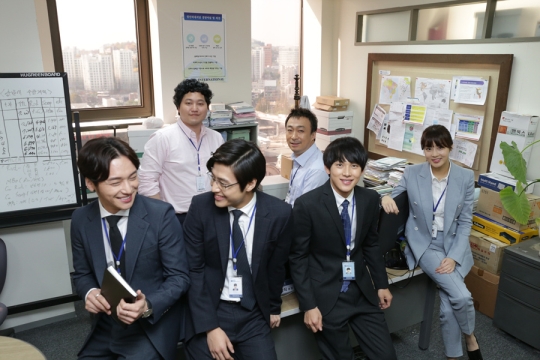
Each country has its history which uniquely shapes its sets of values, morals and widely accepted social norms. The last two years of my life, I have been learning a lot about Korean culture and I am fascinated by the rapid growth of this country which managed to reshape itself in about 30 years from a post-war torn nation to an economic power. Working with a Korean culture expert and providing cross cultural training has given me invaluable insight into how the Korean work values relate to Korean history and as a coach, I can see the relation with the social dynamics. While I have come to appreciate the rigor and the hard work of Korean society, I’ve also realized lately how these very values that have helped it rise so rapidly can now hinder its growth.
To make the metaphor of a country as an individual, I see Korea as having been in survival mode for a long time. After the war ended, Korea would have been like an individual suffering from a severe trauma and going into fight mode putting all its energy and resources towards getting out of a perceived threat. In such a state, rigor, strict rigid norms and routines are highly valuable. The Korean work values of hierarchy, competition and authority were great assets for that era. The good news is Korea is now past the survival phase; it has built a country to be proud of and a great economy. This means it has reached a certain stability that in the Maslow pyramid of needs would mean that for most of Korean society, the basic needs such as food, water, shelter, and physical safety are met.
Most Korean society seems to now be in the spheres of meeting basic psychological needs of belonging and love, the esteem needs of prestige and self-accomplishment and the top of the pyramid needs achieving one’s potential and unleashing creativity. This is where it gets complicated. In order to achieve the need for love and belonging, individuals have a tendency to conform. At this point in time, conforming in Korean workplaces means submitting to hierarchy in the name of harmony, two strong Korean values.
The younger generation which has not witnessed the war or felt its impact directly and has only ever known physical safety is longing for individuality and self-expression because its basic needs are met. Unfortunately, the needs for self-expression and actualization are strongly suppressed in service of the need for acceptance because this generation has already integrated the belief that it is unsafe emotionally to be authentic. On a personal level, this creates a lot of frustration, anger, sadness and can lead to despair, depression and other illnesses.
On organizational levels, it leads to leads to conflict between generations, resentment, loss of productivity and more tragically, loss of creativity. As Korea opens to the world and makes its way forward, it is imperative for it to ignite the creativity to bring innovation and continue driving the country forward in all spheres.
The question then becomes how does a country ignite creativity and empower its present and future generations to become the leaders of a strong and well-grounded society? How does a country make the shift from survival mentality to thriving?
The answer may seem simplistic but by taking down the barriers standing in the way. For Korea, that means accepting and supporting the shift the new generation is longing for, which is the natural progression of humanity. At the individual level, people will have to make decisions about what is more important to them, status or self-fulfillment, fitting in or standing out and living their truth, fueling their creativity by breaking free from the restrictive social norms. On the collective level, that means making much needed transitions in the education and social sectors.
The education system needs to emphasize critical thinking in an unprecedented way, so students are not just excellent in specific areas but are equipped with the skills to think outside the box.
On a social level, a shift in values in unescapable. While holding on the values that serve Korean society, it is imperative to face the reality that some values inhibit growth and allow new ones to emerge. In work environments, that means shifting the dynamics from hierarchy to collaboration, a particularly challenging area for Korean culture. Young people’s ideas need to be encouraged, embraced and nurtured to drive innovation. Mistakes which are now a cause for shame need to become learning opportunities.
Such shifts do not come from the intellect and do not happen miraculously overnight. They are the result of a well sustained effort, driven by leaders in all spheres; leaders who see the disconnects and are willing and able to facilitate and support the change for a thriving society.
The social sector and the education sector and the legal field are some of the key areas that can drive such change.
I have seen the passion and dedication of the Korean people for their country, I have seen sustained effort for economic growth and I know Korea has all the potential it needs to now take stock of what is serving and what is hindering growth to move forward. As we say in transformational coaching, what’s in the way is the way.
Is Korea ready to acknowledge what’s in the new and bring deep, sustainable transformation on the collective level while holding on to all the beauty of what is uniquely Korean and serving Korea and its people?

